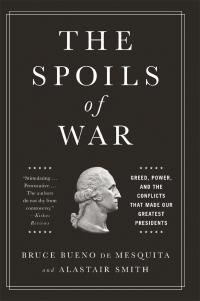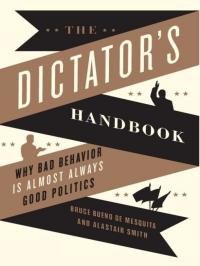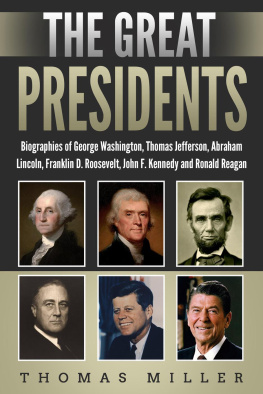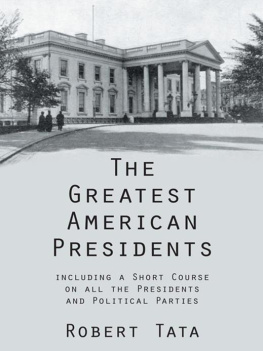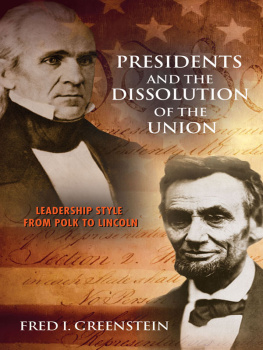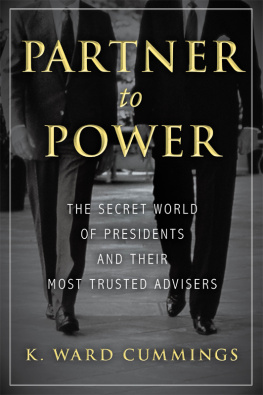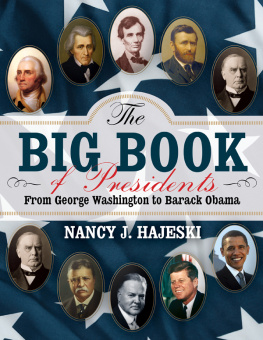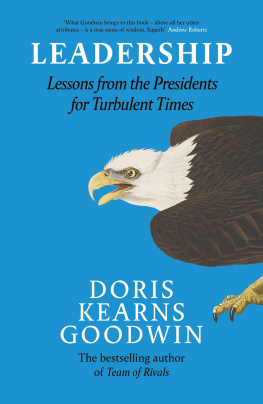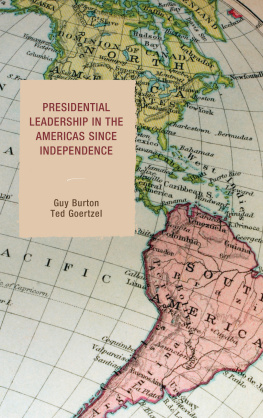

Copyright 2016 by Bruce Bueno de Mesquita and Alastair Smith
Published in the United States by PublicAffairs, an imprint of Perseus Books, a division of PBG Publishing, LLC, a subsidiary of Hachette Book Group, Inc.
All rights reserved.
Printed in the United States of America.
No part of this book may be reproduced in any manner whatsoever without written permission except in the case of brief quotations embodied in critical articles and reviews. For information, address PublicAffairs, 250 West 57th Street, 15th Floor, New York, NY 10107.
PublicAffairs books are available at special discounts for bulk purchases in the US by corporations, institutions, and other organizations. For more information, please contact the Special Markets Department at the Perseus Books Group, 2300 Chestnut Street, Suite 200, Philadelphia, PA 19103, call (800) 810-4145, ext. 5000, or e-mail special.markets@perseusbooks.com.
Book design by Amy Quinn
A CIP record is available from the Library of Congress.
ISBN 978-1-61039-664-6 (ebook)
First Edition
10 9 8 7 6 5 4 3 2 1
With fond remembrance and gratitude for our colleague and friend, George W. Downs. And with love and appreciation for Arlene and Susan.
Contents
Preface
Acknowledgments
Introduction: E Pluribus Unum
Chapter 1: George Washingtons Wars
Chapter 2: Congresss War of 1812
Chapter 3: Abraham Lincoln and the Pursuit of Ambition
Chapter 4: Roosevelts Vanity
Chapter 5: LBJs Defeat by Debit Card, Ws Victory by Credit Card
Chapter 6: John Kennedy and Barack Obama
Conclusion: Fixing Flaws
Notes
Index
Preface
James Madison, an inordinately wise observer of politics and politicians, suggested that the truth is that all men having power ought to be mistrusted. This book is about that truth. Hardly anyone these days would say that they trust their government completely; but do we mistrust them enough? In this book, we investigate a dangerous possibility: that even such great presidents as Washington, Lincoln, FDR, and Madison himself, as well as less revered leaders, such as JFK, LBJ, George W. Bush, and Barack Obama, allow their own interests to trump national best interests when it comes to making what is probably the most consequential decision of allwhether, and how, to go to war. We argue that war, even in a highly democratic society, sadly is not primarily about what is good for We, the people. Of course, true as that is for democracies, there is even less chance that war is about the average citizens welfare in other kinds of governments, such as dictatorships.
Mindful though we must be of Madisons warning, equally we must be careful not to too readily accept the modern-day translation of his wisdom into such bumper-sticker philosophy as Question Authority. In democracies, leaders are chosen with the idea that they will faithfully represent what their subjects want, especially when it comes to making momentous choices between war and peace. Hence, we should be open to the possibility that they can be trusted but we should also recognize that their interests and ours do not necessarily coincide. We need to know how to ensure that our leaders represent our interests fairly, faithfully, and, when necessary, forcefully. This book is concerned with addressing who we should trust and what we should know before our nation or any nation commits itself to resolving crises by war, by negotiation, or by looking the other way.
From our cynical perspective, decisions about whether, when, and how to fight adversaries is primarily about what our chosen leaders think will do them the most good.
We illustrate this point by examining the self-interested actions of even our most revered presidents. Such extraordinary American presidents as George Washington, Abraham Lincoln, Franklin Roosevelt, and yes, James Madison, are taken to task. After introducing the central ideas in the Introduction, we connect historys dots in the subsequent chapters, exposing the mythology of the standard accounts of American presidents at war. We conclude each war chapter with a What If? section that shows realistically how the relevant politicians interests could have been advanced while avoiding or minimizing the heavy costs of their war, advancing instead an alternative approach that would have been better for the average American.
Chapter 1 looks at George Washington, the Declaration of Independence, and the motivation for the American Revolution. Washington, as an exemplar of the founding fathers, is seen to have been strongly driven to declare war against Britain not so much because of King George IIIs alleged tyranny and not even all that much because of taxation without representation, but because his vast personal wealth, like Jeffersons, Franklins, and so many other founding fathers, was put at risk by Britains policies. The average colonist, in contrast, was little affected by the policies pointed to by the founding fathers as the reasons for rebellion and, in fact, a substantial percentage of the colonists either opposed the war or were indifferent to it. Americas wealthiest colonists, not We, the people, were the immediate beneficiaries of a revolution whose issues could have been settled by peaceful means.
Chapter 2 investigates Madisons War of 1812, sometimes called the Second War for Independence. Here we see that ambitious presidents can go along with self-aggrandizing leaders in Congress just to curry their favor. This first declared American war has a powerful message for todays foreign policy debates. Many have bought into the folklore of a bipartisan foreign policy at least when it comes to the question of war. The War of 1812like George W. Bushs Iraq War, taken up in Chapter 5illustrates how partisan interests can overwhelm concern for national well-being. Madison, architect of the Constitution, abdicated his power as commander in chief, surrendering control over the nations vital foreign policy to a pair of freshman members of Congress, Henry Clay and John C. Calhoun, with mostly bad results for the country but great results for them and for Madison. In the process of fighting what might be termed a farcical war, Madison ensured that he, and not some prowar alternative politician, was elected in 1812.
Chapter 3 suggests that Abraham Lincoln, a smoke-filled-room, dirty-tricks politician, was a changed man after the Supreme Court handed down the Dred Scott decision in March 1857. Before that, he did little to advance his own belief that slavery was immoral, since doing so would only have put his political ambitions (and his lucrative legal practice) in danger. After Dred Scott, he found a way to link his opposition to slavery to his burning ambition to be a person who mattered, with that desire to matter translated into his quest, starting in 1858, to become president. We demonstrate that to fulfill his ambition and his beliefs Lincoln needed a civil war.1 Through a series of lawyerlike briefs (at which he was a master), Lincoln made himself a serious contender for the Republican presidential nomination by willfully provoking disunion even as he (and historys lore) declared that nothing was more important to him than preserving the Union. Tragically, his contemporaries, who viewed him as a big-hearted but broadly incompetent leader, were probably closer to the truth than we are today. As we demonstrate, he neither worked masterfully to preserve the Union nor did he conduct the war against the Confederacy skillfully. Reasonable estimates suggest the Civil War should have lasted only about five or six months, rather than four years. Lincoln failed to win it quickly or efficiently, contrary even to the expectations of such major Confederate figures as Jefferson Davis or John Breckinridge. But for the long, costly war he instigated, in all likelihood we would remember Lincoln no better than such one-term presidents as Franklin Pierce or Rutherford Hayes. War made Lincoln and Lincoln, with the help of short-sighted southern fire-eaters, made the costliest war in American history.
Next page
